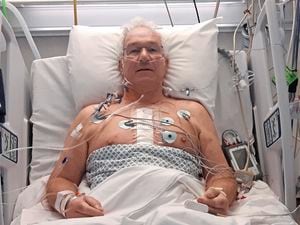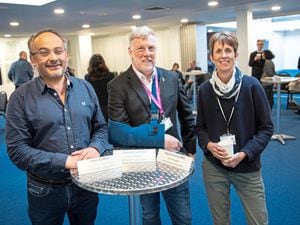WATCH: Expanding virus testing could allow Public Health to ‘hunt down’ cases
THE head of Public Health has outlined the triggers that will inform future lockdown decisions, which include community seeding, intensive care activity at the hospital and the reproduction rate of the virus.

Doctor Nicola Brink explained how the reproduction rate, or R rate, measures how many people each case is likely to infect.
‘If you have an R rate of R10, then one person can potentially infect 10 other people if there are no mitigations in place,’ she said. ‘We have done broader testing across the piste and we’ve also tested, for example, all of our care home workers, so we’ve picked up quite a lot of asymptomatic cases but despite all of our broader testing our R value is less than one, it’s 0.85.’
An R value of less than one should result in cases falling over time, while anything above one would lead to an increase as cases compound over time. Very infectious viruses such as measles can have an R rates above 10, while Covid-19 in the UK is thought to have an R rate of between 0.6 and 0.9 varying across regions.

Dr Brink said a rolling 28-day R value would influence decision making going forward and would be published weekly.
Two hundred and nine people have now recovered from the virus and Guernsey currently has only 29 active cases. Thirteen people have died with the virus and Dr Brink said that case numbers across all categories were falling, in line with an R rate of less than 1.
Medical director Peter Rabey said the hospital Covid ward was quiet, with only two patients.
As predicted at the outset of lockdown, mental health case numbers had increased, Dr Rabey added, before encouraging anyone who needs help to come forward.
‘Mental health services have been really quite busy over the last couple of weeks and it’s not surprising, we’ve changed the way a lot of people live and deal with their conditions and put a lot of stress on people.'
Anyone in need can get help via a referral from primary care, he said.
Antibody testing will be on island within 10 days and although it will take time to establish, it will be used to test health care workers and the contacts of positive cases to measure asymptomatic cases.
Eventually, Dr Brink hoped testing could be expanded, allowing Public Health to ‘hunt down’ cases rather than waiting for people with Covid-19 symptoms to come to them.





